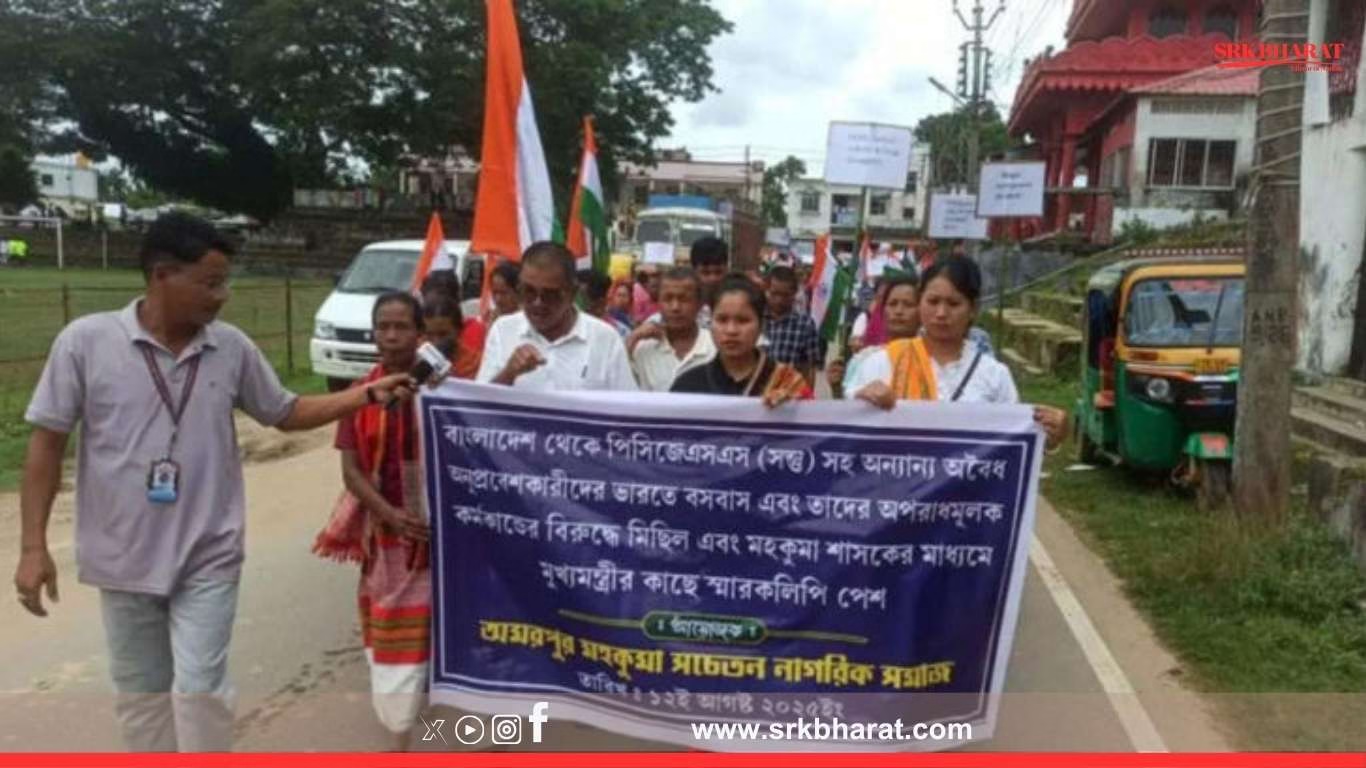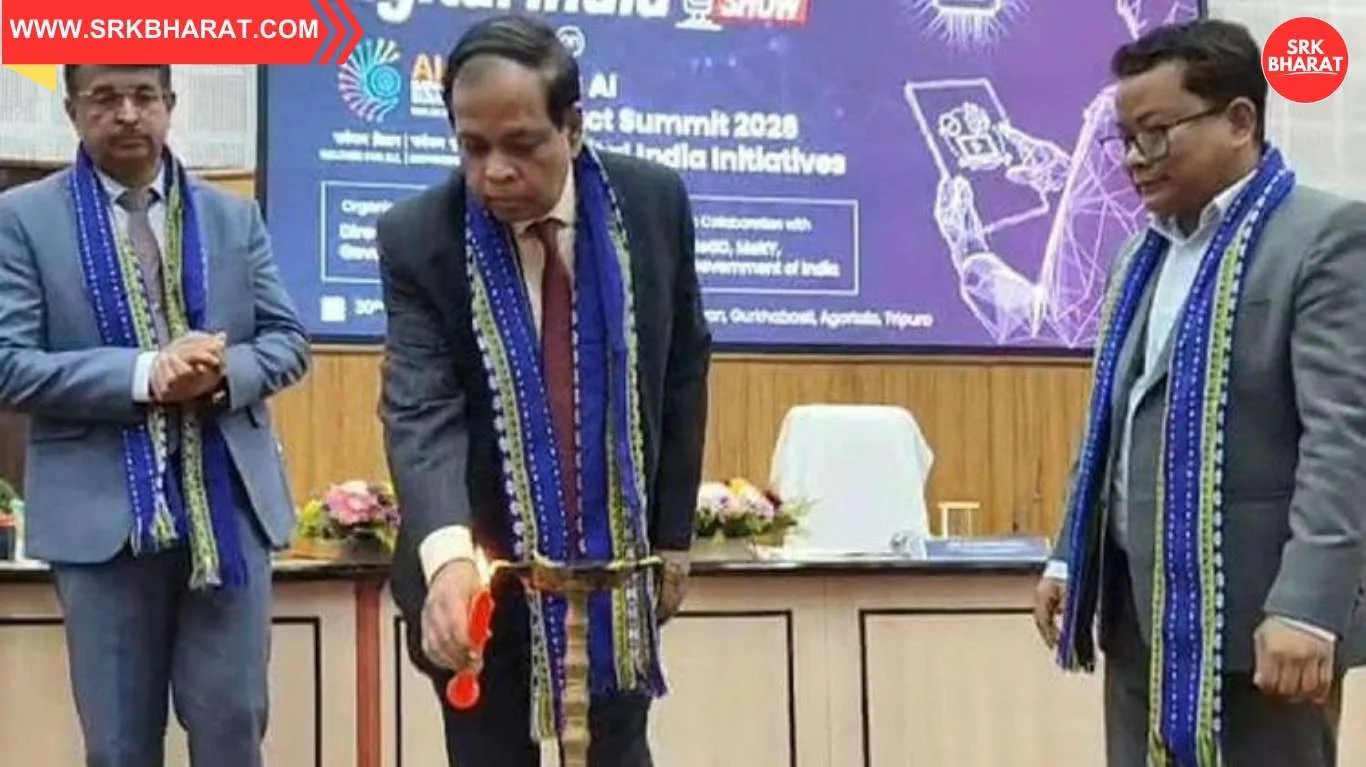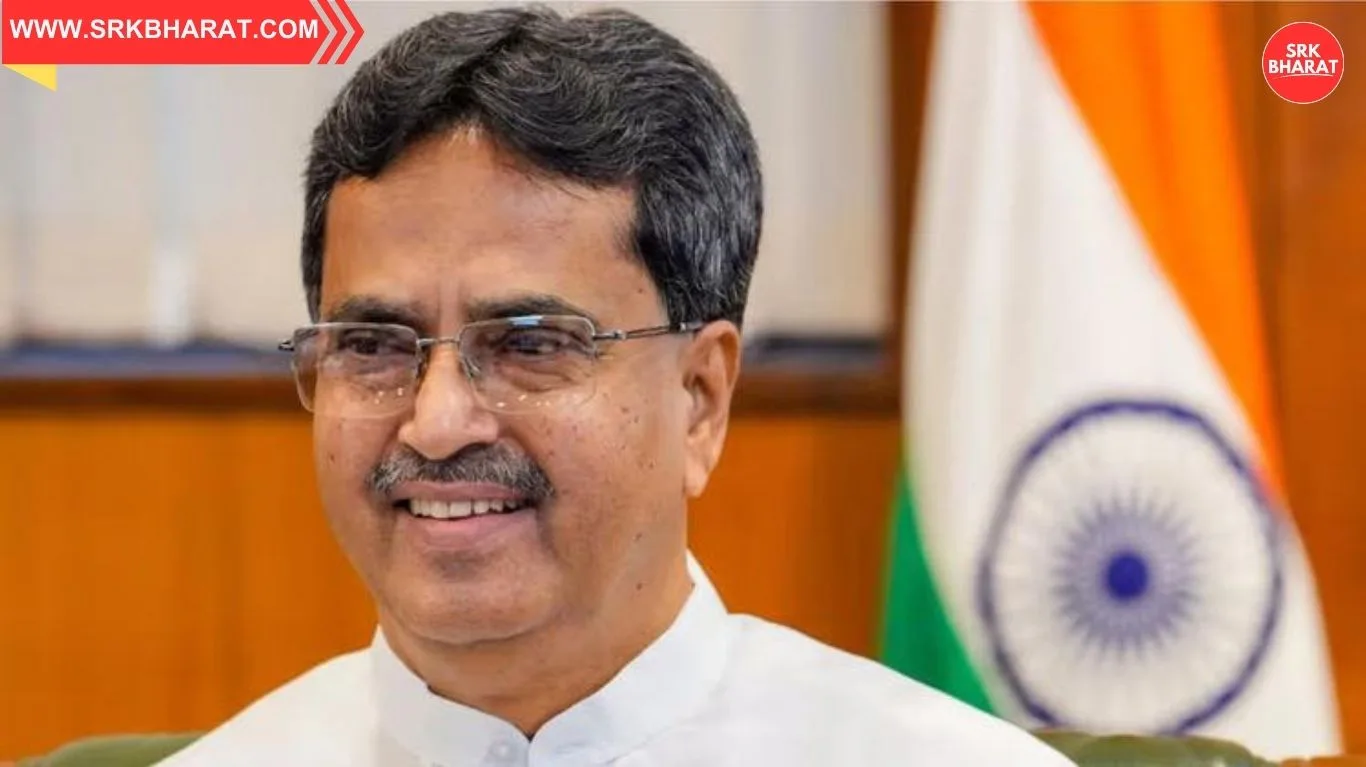In a growing wave of public unrest, protesters in Tripura have intensified their demand for the ouster of the Parbatya Chattagram Jana Samhati Samiti (PCJSS), an armed political group from Bangladesh’s Chittagong Hill Tracts (CHT) region. Demonstrations across the state have been drawing larger crowds, with participants voicing concerns over security, cross-border militancy, and the safety of tribal and non-tribal communities along the India-Bangladesh border.
Who Are the PCJSS?
The PCJSS is a political organisation in Bangladesh that represents the interests of the indigenous Jumma people in the Chittagong Hill Tracts. Though officially recognised as a political entity, the group has been accused of engaging in armed activities even after the signing of the 1997 CHT Peace Accord with the Government of Bangladesh.
Tripura residents and activist groups allege that PCJSS operatives have been using remote forest areas on the Bangladeshi side of the border to infiltrate Indian territory for extortion, smuggling, and intimidation.
Protest Locations and Scale of Unrest
The recent wave of protests has spread across multiple districts of Tripura, including South Tripura, Dhalai, and North Tripura. Demonstrators, led by local tribal councils, student bodies, and social organisations, have been rallying near border check-posts, administrative offices, and town squares.
| District | Major Protest Sites | Estimated Participants |
|---|---|---|
| South Tripura | Belonia, Sabroom | 2,500+ |
| Dhalai | Ambassa, Chawmanu | 1,800+ |
| North Tripura | Dharmanagar, Kanchanpur | 2,200+ |
| West Tripura | Agartala (symbolic marches) | 1,000+ |
The demonstrations have remained largely peaceful but firm, with protest leaders submitting memoranda to state authorities urging swift action against suspected cross-border insurgent movement.
Core Demands of Protesters
The protesters’ key demands include:
- Tightening Border Security – Deployment of additional Border Security Force (BSF) personnel in vulnerable stretches of the Indo-Bangladesh border.
- Diplomatic Action – Urging the Indian government to press Dhaka to ensure PCJSS armed wings are dismantled.
- Surveillance and Intelligence Sharing – Enhanced coordination between Indian and Bangladeshi security agencies to monitor militant movement.
- Community Protection – Special protection units for tribal villages situated close to the international border.
Political and Diplomatic Reactions
Tripura’s ruling government has stated that it is in close coordination with the Union Ministry of Home Affairs (MHA) regarding security measures. State officials have confirmed that intelligence inputs indicate sporadic cross-border movements by suspected armed cadres, but investigations are ongoing.
On the diplomatic front, sources suggest that India has raised concerns with Bangladesh about the continuing activities of armed groups in the CHT region. Dhaka, however, has maintained that it is committed to implementing the CHT Peace Accord and cracking down on any non-state armed actors.
The Security Challenge in the CHT-Tripura Border Belt
The Chittagong Hill Tracts is a hilly, forested area in southeastern Bangladesh that shares borders with India’s Tripura and Mizoram states, as well as Myanmar. Due to its difficult terrain, the region has historically been a hotspot for insurgency, arms smuggling, and ethnic unrest.
Security analysts note that while the peace accord in Bangladesh brought relative stability, factional rivalries and illegal activities among armed groups, including splinter factions of PCJSS, have continued to trouble border districts in Tripura.
Recent Security Measures
In response to rising tensions, Tripura’s border security has been reinforced with:
- Night surveillance patrols by the BSF.
- Drones and advanced cameras deployed in infiltration-prone stretches.
- Community intelligence networks activated in tribal belts.
- Coordination meetings between Tripura Police, Assam Rifles, and BSF units.
Economic and Social Impact on Border Communities
The unrest and security risks have disrupted agricultural trade and cross-border commerce between Tripura and Bangladesh. Farmers in border villages complain about restricted movement in fields near the fencing due to heightened security protocols.
Small businesses, especially those dependent on the border haats (weekly cross-border markets), have reported a decline in customers and revenue.
| Impact Area | Observed Effect |
|---|---|
| Agriculture | Reduced access to farmland near border |
| Border Haats | 30-40% drop in cross-border trade |
| Local Transport | Stricter checks causing delays |
| Tourism | Decline in visits to border villages |
Voices From the Ground
Local community leader Bikram Debbarma from Dhalai district stated:
“Our people live in constant fear. We have seen armed men cross over in the night. The government must act before things spiral out of control.”
Student activist Anita Reang added:
“We are not against any community, but armed groups have no place in peaceful societies. The border must be secure for all.”
What Lies Ahead
Security experts believe that unless bilateral enforcement mechanisms between India and Bangladesh are strengthened, sporadic tensions will continue. They also stress that community engagement, along with development programmes in border villages, can help reduce the influence of insurgent networks.
The protests in Tripura have already gained significant political attention, and how authorities respond could shape India-Bangladesh border relations in the coming months.
Disclaimer: This news article is based on information from public statements, government briefings, and local accounts. It is intended for informational purposes only and does not serve as a substitute for official security advisories.












перепланировка офиса https://soglasovanie-pereplanirovki-kvartiry3.ru/ .
топ seo агентств top-10-seo-prodvizhenie.ru .
seo с нуля http://www.kursy-seo-11.ru/ .
goliath casino review http://www.goliath-casino.com/ .
it перевод в москве telegra.ph/Oshibka-lokalizacii-pochemu-vash-IT-produkt-ne-ponimayut-za-granicej-11-09 .
электрическая рулонная штора http://www.avtomaticheskie-rulonnye-shtory11.ru .
электрические рулонные шторы на окна электрические рулонные шторы на окна .
pin up akkaunt yaratish http://www.pinup5009.ru
пин-ап пин-ап
pin up oynalgan sayt uz https://pinup5011.ru
pin up yuklash ios https://pinup5012.ru
пин ап демо режим http://www.pinup5013.ru
pin up texnik yordam https://pinup5014.ru/
ставки на настольный теннис телеграмм http://1win5522.ru